Ritvo Autism Asperger Diagnostic Scale-Revised
The Ritvo Autism Asperger Diagnostic Scale-Revised (RAADS-R) is a valid and reliable instrument to assist the diagnosis of adults with Autism Spectrum Disorders (ASD).
Don't see the assessment you need? Request an assessment
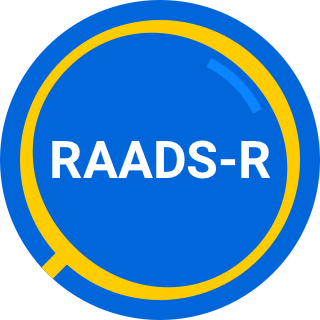
The Ritvo Autism Asperger Diagnostic Scale-Revised (RAADS-R) is a valid and reliable instrument to assist the diagnosis of adults with Autism Spectrum Disorders (ASD).
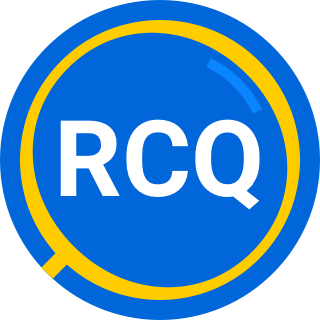
The Readiness to Change Questionnaire (RCQ) is a 12-item instrument for measuring the "stage of change" reached by an excessive drinker of alcohol.
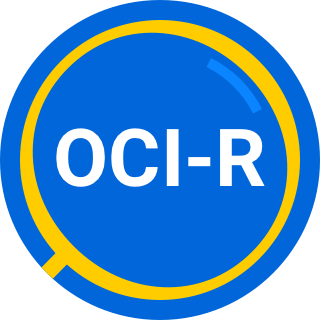
The Obsessive-Compulsive Inventory-Revised (OCI-R) is a self-report measure for assessing symptoms of obsessive-compulsive disorder (OCD). It consists of 18 items composing 6 subscales: washing, checking, ordering, obsessing, hoarding and neutralizing. It is a highly useful diagnostic screening instrument in research and clinical settings.
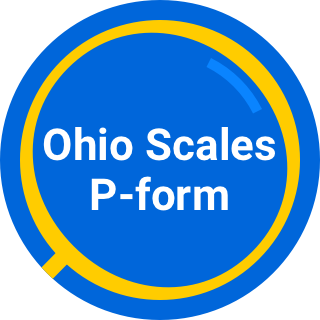
The Ohio Scales for Youth are brief measures of outcome for youth receiving mental health services. The scales include a 20 item Problem Severity scale and a 20 item Functioning scale rated from the youth. In addition, the parent rate scales of Satisfaction with treatment and Hopefulness.

The UPPS-P is a revised version of the UPPS Impulsive Behavior scale. This version, UPPS-P, assesses Positive Urgency in addition to the four pathways assessed in the original version of the scale-- Urgency (now Negative Urgency), (lack of) Premeditation, (lack of) Perseverance, and Sensation Seeking.
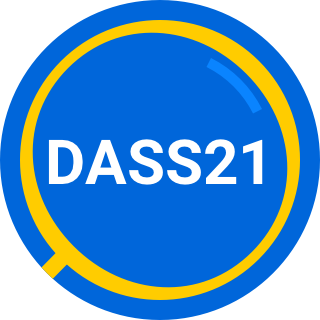
The Depression, Anxiety and Stress Scale - 21 Items (DASS21) is short version of the Depression, Anxiety and Stress Scale (DASS). The DASS is a set of three self-report scales designed to measure the negative emotional states of depression, anxiety and stress.
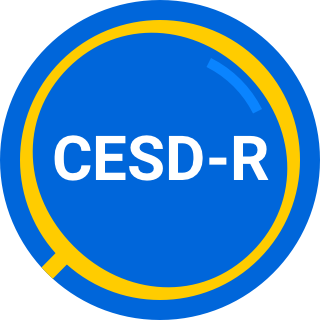
The Center for Epidemiological Studies Depression - Revised (CESD-R) is a 20 items screening test for depression and depressive disorder.
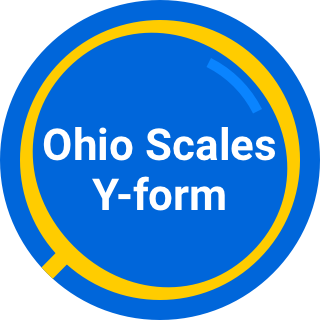
The Ohio Scales for Youth are brief measures of outcome for youth receiving mental health services. The scales include a 20 item Problem Severity scale and a 20 item Functioning scale rated from the youth. In addition, the youth rate scales of Satisfaction with treatment and Hopefulness.
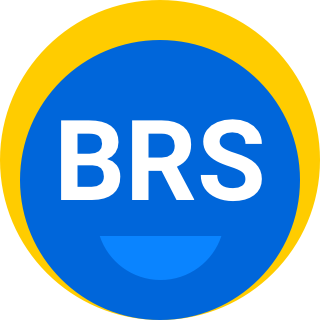
The Brief Resilience Scale (BRS) was created to assess the ability to bounce back or recover from stress.
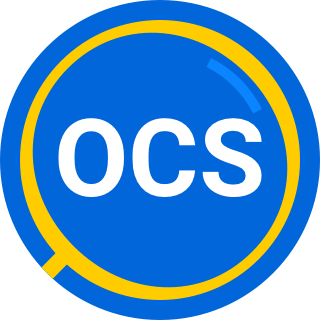
The Obsession with COVID-19 Scale (OCS) is a self-report mental health screener of persistent and disturbed thinking about COVID-19.

The General Procrastination Scale is a 20-item measure of general procrastination.
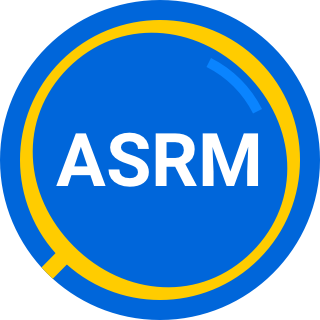
The Altman Self-Rating Mania Scale (ASRM) is a brief self-rating mania scale, compatible with DSM-IV criteria, that can be used to measure the presence and severity of manic symptoms for research or clinical purposes.

The 36-Item Short Form Survey (SF-36) is a set of generic, coherent, and easily administered quality-of-life measures.
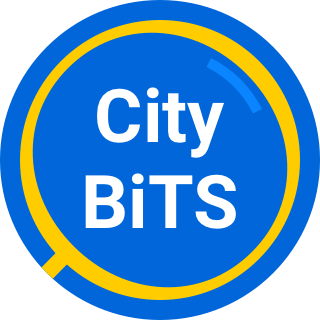
The City Birth Trauma Scale (City BiTS) is a promising measure of birth-related PTSD. It can be used clinically or in research to examine PTSD symptoms and clinical disorder in women who have experienced trauma in childbirth.
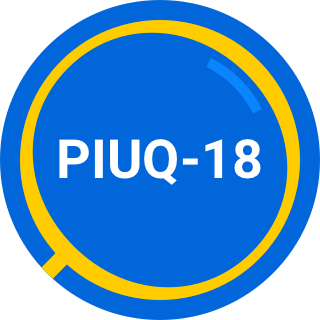
The Problematic Internet Use Questionnaire (PIUQ) is a useful assessment tool for measuring problems in connection with Internet use.

The Ask Suicide-Screening Questions (ASQ) tool is a set of four brief suicide screening questions that takes 20 seconds to administer.
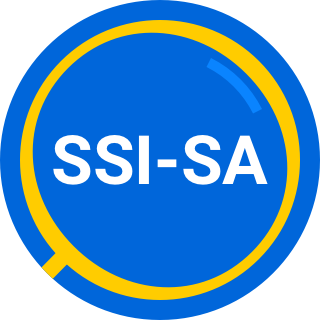
The Simple Screening Instrument for Substance Abuse (SSI-SA) is a 16-item scale designed to encompass a broad spectrum of signs and symptoms for substance use disorders, and particularly to screen patients in mental health settings for co-occurring substance abuse disorders.

The IPIP-HPI is a publically available representation of constructs similar to those in the Hogan Personality Inventory (HPI), drawing 288 items from the International Personality Item Pool.

The adult self-administered version of the World Health Organization Disability Assessment Schedule 2.0 (WHODAS 2.0) is a 36-item measure that assesses disability in adults age 18 years and older.
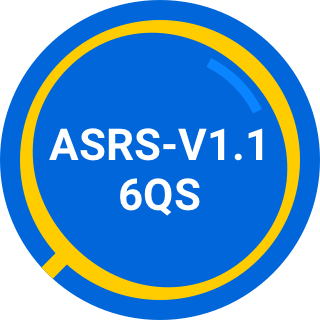
The 6-question Adult Self-Report Scale-Version1.1 (ASRS-V1.1 6QS) Screener is a subset of the 18-question Adult ADHD Self-Report Scale-Version1.1 (Adult ASRSV1.1) Symptom Checklist.
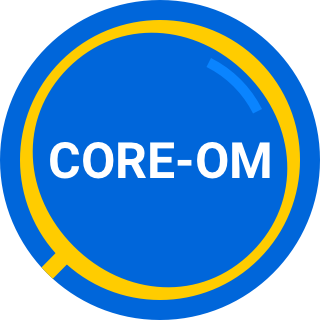
The Clinical Outcomes in Routine Evaluation – Outcome Measure (CORE-OM) is a 34-item self-report measure designed to assess level of psychological distress and outcome of psychological therapies.
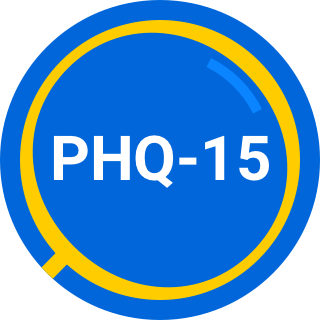
The Patient Health Questionnaire 15 (PHQ-15) is the somatic symptom scale from Patient Health Questionnaire (PHQ). It was derived from the original PHQ studies and is increasingly used to assess somatic symptom severity and the potential presence of somatization and somatoform disorders.
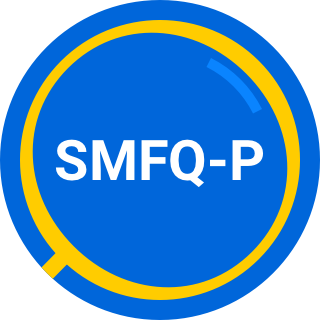
The Short Mood and Feelings Questionnaire (Parent-Report Version) (SMFQ-P) is a brief, easy-to-administer, parent-report measure of childhood and adolescent depression, designed for rapid evaluation of core depressive symptomatology or for use in epidemiological studies.
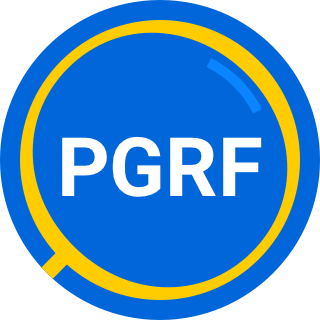
The Pandemic Grief Risk Factors (PGRF) is a self-report inventory or screening tool of distinctive risk factors associated with grief in the context of a COVID-19 loss.

Vanderbilt Attention Deficit/Hyperactivity Disorder Teacher Rating Scale (VADTRS) is a teacher rating scale to help diagnose ADHD in children between the ages of 6- and 12-years.
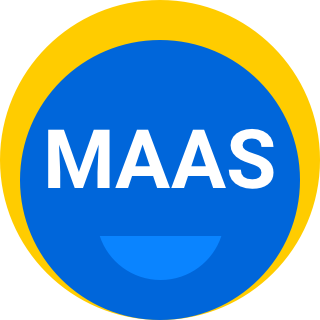
The trait Mindful Attention Awareness Scale (MAAS) is a 15-item scale designed to assess a core characteristic of mindfulness, namely, a receptive state of mind in which attention, informed by a sensitive awareness of what is occurring in the present, simply observes what is taking place.
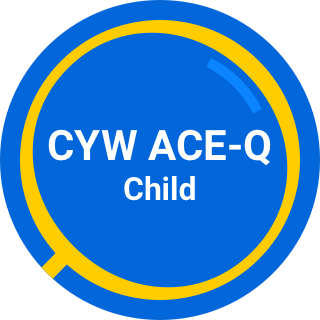
The CYW Adverse Childhood Experiences Questionnaire for Children (CYW ACE-Q Child) is a clinical screening tool that calculates cumulative exposure to Adverse Childhood Experiences (ACEs). It is a 17 item instrument completed by the parent/caregiver for children age 0 to 12.
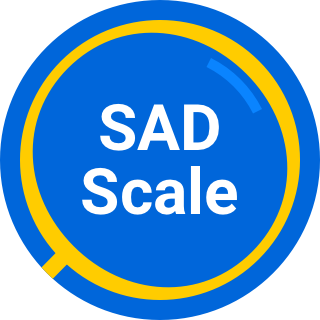
The Social Avoidance and Distress (SAD) scale is a scale to assess levels of Social Avoidance and Distress (SAD).
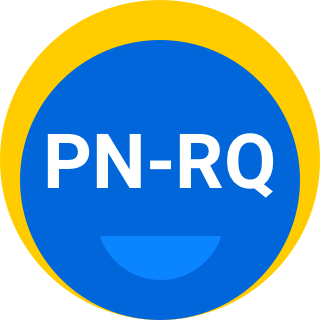
The Positive and Negative Relationship Quality scale (PN-RQ) is a measure of positive and negative relationship quality.
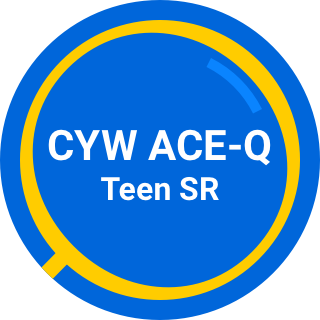
The CYW Adverse Childhood Experiences Questionnaire for Adolescents : Self Report (CYW ACE-Q Teen SR) is a clinical screening tool that calculates cumulative exposure to Adverse Childhood Experiences (ACEs). It is a 17 item instrument completed by youth age 13 to 19.
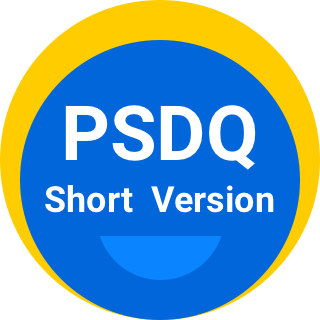
The Parenting Styles & Dimensions Questionnaire - Short Version (PSDQ-Short Version) is a 32-item parenting questionnaire designed to assess global typologies (authoritative, authoritarian, permissive) consistent with Baumrind’s main conceptualizations for parents of preschool and school-age children.
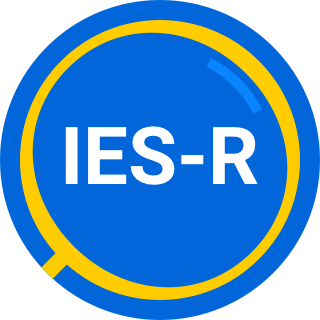
The Impact of Event Scale-Revised (IES-R) is a self-report measure of current subjective distress in response to a specific traumatic event.
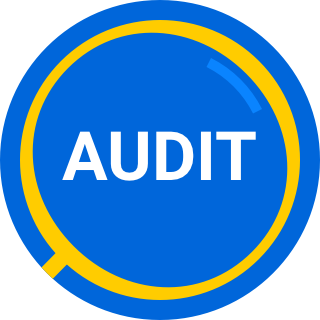
The Alcohol Use Disorders Identification Test (AUDIT) is a screening test to identify persons with hazardous and harmful patterns of alcohol consumption.
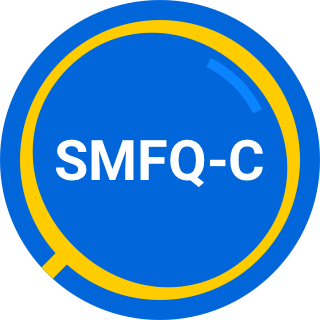
The Short Mood and Feelings Questionnaire (Child Self-Report Version) (SMFQ-C) is a brief, easy-to-administer, self-report measure of childhood and adolescent depression, designed for rapid evaluation of core depressive symptomatology or for use in epidemiological studies.
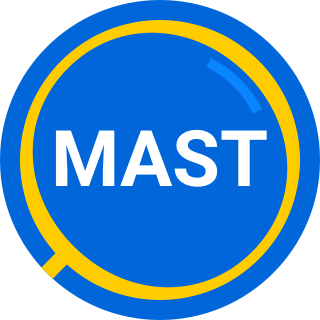
The Michigan Alcoholism Screening Test (MAST) was devised to provide a consistent, quantifiable, structured interview instrument for the detection of alcoholism that could be rapidly administered by nonprofessional as well as professional personnel.
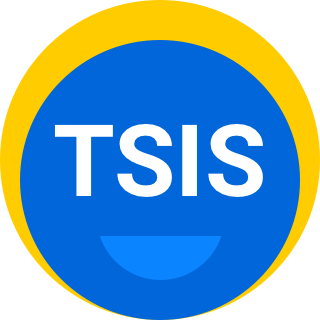
The Tromsø Social Intelligence Scale (TSIS) is a multi-faceted measure of social intelligence.
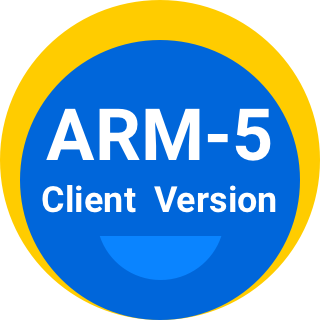
The Agnew Relationship Measure - 5 (ARM-5) is a 5-item self-report measure designed to assess the client- therapist alliance.

The O*NET Interest Profiler is a vocational interest inventory designed for use in educational planning, career exploration, and career guidance.
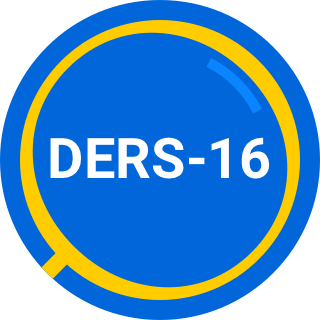
The Difficulties in Emotion Regulation Scale - 16-item version (DERS-16) offers a valid and brief method for the assessment of overall emotion regulation difficulties.
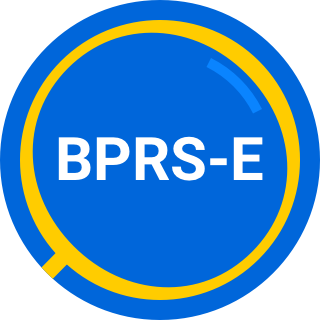
The 24-item Brief Psychiatric Rating Scale Expanded Version (BPRS-E) provides a highly efficient, rapid evaluation procedure form assessing symptom change in psychiatric patients. It yields a comprehensive description of major symptom characteristics. The BPRS-E assesses a wide range of psychopathology including symptoms of depression, anxiety, psychosis, mania, and withdrawal. Ratings are based on patient report and observation of the patient during the interview.
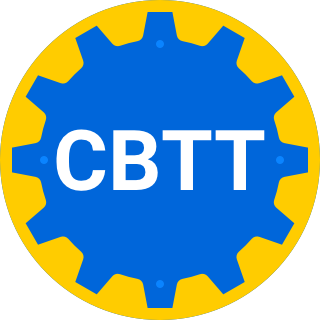
The Corsi Block-Tapping Task is a span task and, as such, a visuospatial analogue to the digit span as an index of verbal short-term memory.
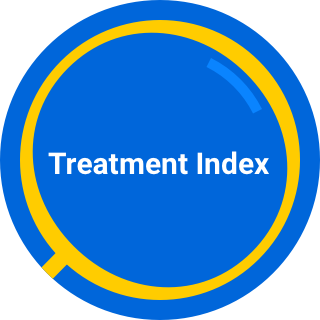
The Illness Index questionnaires measure appraisal of a disease, injury, or disability in terms of its biological, psychological, and social disruption. The total score represents the global effect of a disease or physical disability on the biopsychosocial ecology of a person's life. The Treatment Index was designed to provide a patient's view of treatment effects and HR-QOL issues in the same manner as the Illness Index provides a measure of disease or injury effects.

Steiner’s Automobile Anxiety Inventory (AAI) is a 23 item questionnaire of which 18 can be scored to provide a quantitative measure of vehicular anxiety (amaxophobia) as common in survivors of motor vehicle accidents (MVAs).

The HERO Wellness Scale is a brief self-report screening tool that allows both the clinician and respondent together to track wellness and to aim toward a full return to health. It is a brief, easily understood, valuable index of the construct of mental wellness. It assesses positive psychology traits such as happiness, enthusiasm, resilience, optimism, and overall mental wellness.

The Positive and Negative Affect Schedule (PANAS) comprises of two 10-item brief scales to measure the two primary dimensions of mood— Positive and Negative Affect.
.png?alt=media&token=40e9c2a5-bb83-47f5-ad65-0bf08095e3a3)
The high-functioning Autism Spectrum Screening Questionnaire (ASSQ) is a 27-item check-list for completion by lay informants when assessing symptoms characteristic of Asperger syndrome and other high-functioning autism spectrum disorders in children and adolescents with normal intelligence or mild mental retardation.

The Kessler Psychological Distress Scale 10 (K10) is a 10-question screening scale of psychological distress.
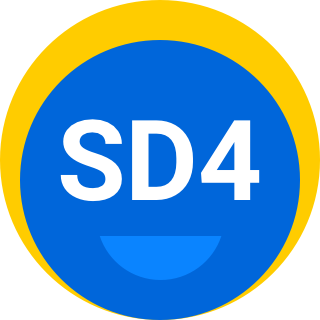
The Short Dark Tetrad (SD4) is a 28-item instrument which captures subclinical versions of narcissism, Machiavellianism, psychopathy, and sadism.
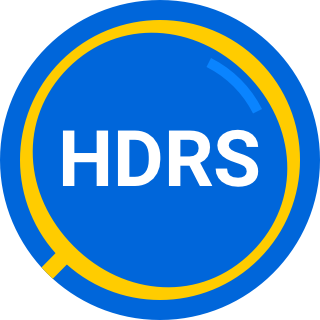
The Hamilton Depression Rating Scale (HDRS) is the most widely used clinician-administered depression assessment scale.
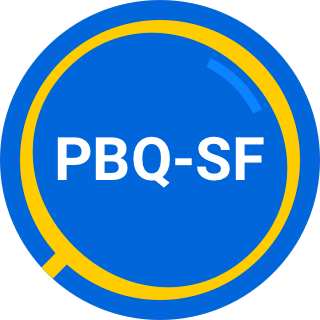
The Personality Belief Questionnaire-Short Form (PBQ-SF) is a 65-item self-report instrument for assessment of dysfunctional beliefs based on Beck’s cognitive formulations of personality disorders.
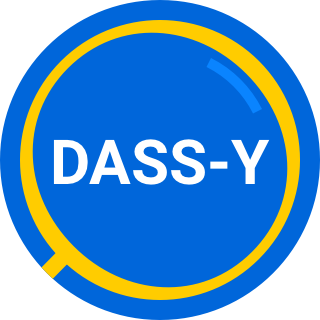
The Depression, Anxiety and Stress Scale - Youth (DASS-Y) is a psychometrically sound brief dimensional measure of depression, anxiety and stress in children and adolescents aged 8–17.
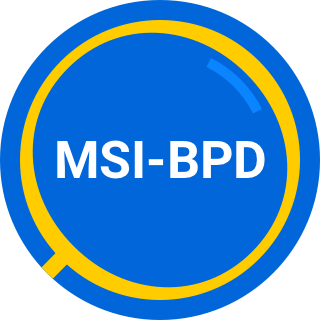
The McLean Screening Instrument for Borderline Personality Disorder (MSI-BPD) is a self-report screening measure for the presence of DSM-IV borderline personality disorder.
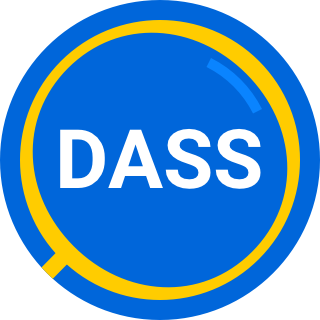
The Depression, Anxiety and Stress Scale (DASS) is a set of three self-report scales designed to measure the negative emotional states of depression, anxiety and stress.
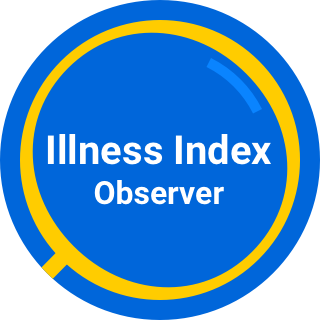
The Illness Index questionnaires measure appraisal of a disease, injury, or disability in terms of its biological, psychological, and social disruption. The total score represents the global effect of a disease or physical disability on the biopsychosocial ecology of a person's life. The Illness Index – Observer has the same content as the Illness Index and is intended for a spouse or partner to complete. In some cases, an adult child can complete the questionnaire.

The Geriatric Depression Scale (GDS) is a self-rating depression screening scale for elderly populations.

The Pediatric Symptom Checklist-17 (PSC-17) is a 17-item screening questionnaire that is completed by parents and designed to help pediatricians in outpatient practice identify school-age children with difficulties in psychosocial functioning.
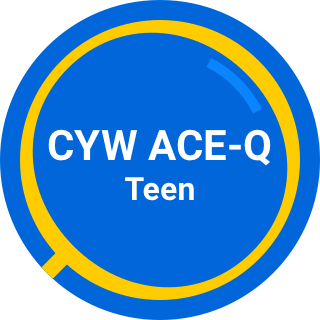
The CYW Adverse Childhood Experiences Questionnaire for Adolescents (CYW ACE-Q Teen) is a clinical screening tool that calculates cumulative exposure to Adverse Childhood Experiences (ACEs). It is a 17 item instrument completed by the parent/caregiver for children age 13 to 19.
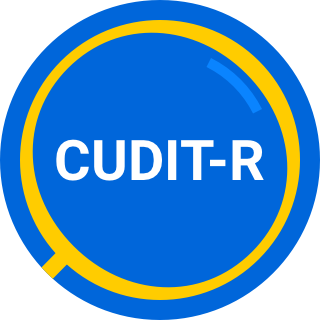
The Cannabis Use Identification Test-Revised (CUDIT-R) is a brief cannabis misuse-screening tool, which is widely used to identify cannabis use problems.
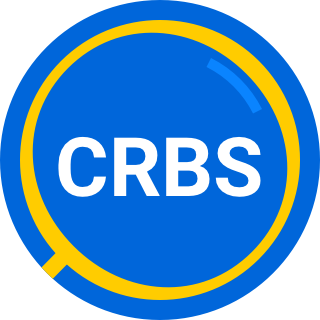
The Coronavirus Reassurance-Seeking Behaviors Scale (CRBS) is a self-report measure of reassurance-seeking behaviors associated with concerns over coronavirus infection.
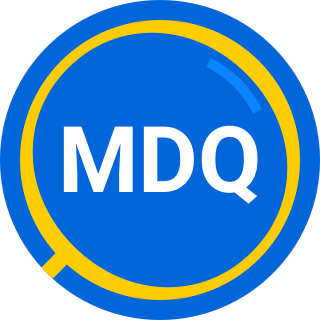
The Mood Disorder Questionnaire (MDQ) is a brief self-report screening instrument for bipolar spectrum disorders, which include bipolar I, bipolar II, and bipolar disorder not otherwise specified.

The Problematic Online Gaming Questionnaire Short-Form (POGQ-SF) is a 12-item measurement tool for the differentiated assessment of gaming related problems on six subscales – preoccupation, overuse, immersion, social isolation, interpersonal conflicts, and withdrawal.
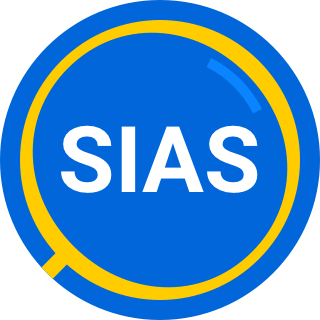
The Social Interaction Anxiety Scale (SIAS) is a twenty-item measure which assesses fears of general social interaction, corresponding to the DSM-III-R descriptions of Social Phobia - Generalised type.
.png?alt=media&token=6d73dd14-2cda-4693-8fd8-d989f01a1ced)
The high-functioning Autism Spectrum Screening Questionnaire (ASSQ) is a 27-item check-list for completion by lay informants when assessing symptoms characteristic of Asperger syndrome and other high-functioning autism spectrum disorders in children and adolescents with normal intelligence or mild mental retardation.
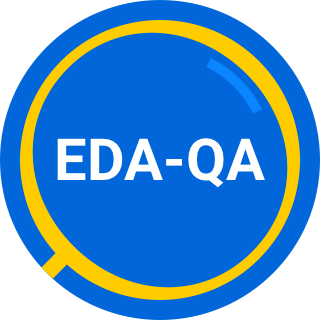
EDA-QA is a useful tool to assess self-identified traits of relevance to the Pathological (“extreme”) demand avoidance (PDA) profile.
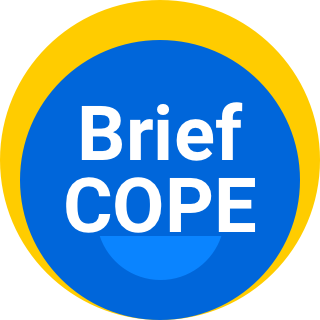
The Brief COPE is a multidimensional coping inventory to assess the different ways in which people respond to stress. It is a brief measure of coping reactions, based on the COPE inventory.
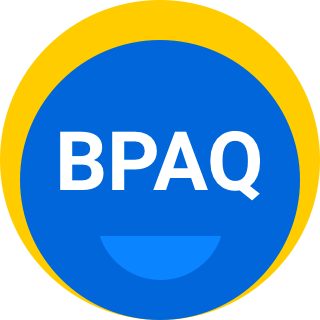
The Buss-Perry Aggression Questionnaire (BPAQ) is a 29-item self-report measure of aggression.

The Inventory of Complicated Grief (ICG) provides an easily administered assessment for symptoms of complicated grief.
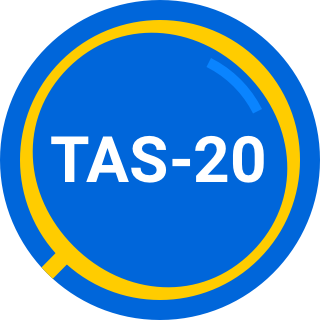
The Toronto Alexithymia Scale (TAS) was developed in 1985 as the first reliable and valid self-report measure of the alexithymia construct. It was modified in 1992 to develop a revised and improved twenty-item version, which is called the Twenty-Item Toronto Alexithymia Scale (TAS-20).

The Morningness-Eveningness Questionnaire (MEQ) is a 19 items scale developed to assess morningness-eveningness – the degree to which respondents are active and alert at certain times of day.

The 5-item World Health Organization Well-Being Index (WHO-5) is a short and generic global rating scale measuring subjective well-being.

The Self-Compassion Scale (SCS) is a 26-item self-report questionnaire measuring the six components of self-compassion: Self-Kindness, reduced Self-Judgment, Common Humanity, reduced Isolation, Mindfulness, and reduced Overidentification.

The Pandemic Grief Scale (PGS) is a self-report mental health screener of dysfunctional grief due to a COVID-19 loss.
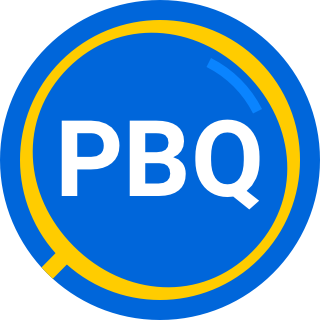
The Personality Beliefs Questionnaire (PBQ) is a 126-item self-report measure of beliefs associated with personality disorders.
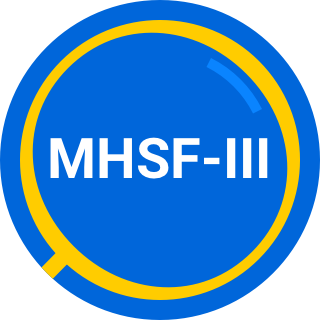
The Mental Health Screening Form-III (MHSF-III) was initially designed as a rough screening device for clients seeking admission to substance abuse treatment programs. The instrument was designed to be short, readily understandable, and easy to use.
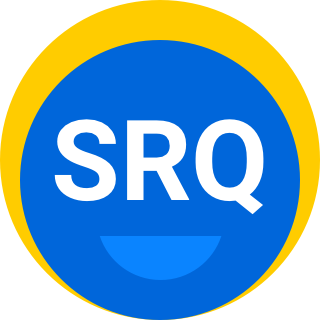
The Self Rating Questionnaire (SRQ) was developed to provide a self-assessment on 13 core competencies or Personal Entrepreneurial Competencies (PECs).

The Sleep Hygiene Index (SHI) is a 13-item self-administered index intended to assess the presence of behaviors thought to comprise sleep hygiene.
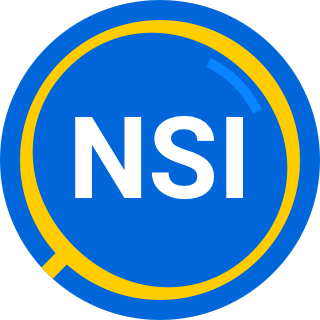
The NSI is a 22-item self-report measure of postconcussive symptoms.

The BART is a computerized, laboratory-based measure that involves actual risky behavior for which, similar to real-world situations, riskiness is rewarded up until a point at which further riskiness results in poorer outcomes.

The Camouflaging of Autistic Traits Questionnaire (CAT-Q) is a 25-item self-report questionnaire measuring strategies used to camouflage autistic traits and comprising three factors (Compensation, Masking and Assimilation) which are summed up to produce a total score from 25 to 175, with higher scores representing greater levels of camouflaging.
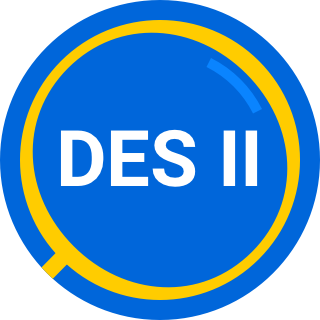
The Dissociative Experiences Scale II (DES II) is a brief, self-report measure of the frequency of dissociative experiences.
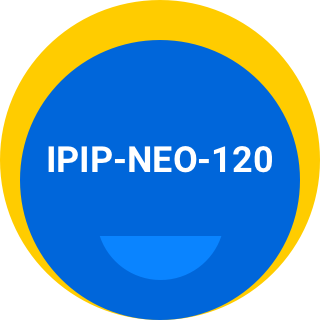
IPIP-NEO-120 is a publically available representation of five domains and 30 facets of the Five Factor Model (Neuroticism, Extraversion, Openness, Agreeableness, and Conscientiousness), drawing 120 items from the International Personality Item Pool.
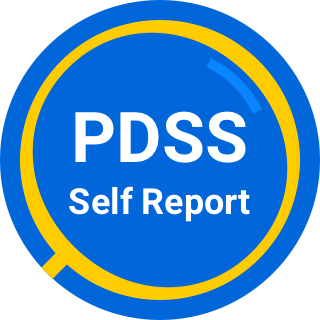
The Panic Disorder Severity Scale (PDSS) is a seven-item scale designed to assess overall severity of panic disorder symptoms. The PDSS-SR is the self-report version of the PDSS.

The International Trauma Questionnaire (ITQ) is a self-report diagnostic measure of post-traumatic stress disorder (PTSD) and complex PTSD (CPTSD), as defined in the 11th version of the International Classification of Diseases (ICD-11).

The Wender Utah Rating Scale (WURS) is a retrospective self-report of childhood attention-deficit/hyperactivity disorder (ADHD) symptoms used by physicians and other healthcare professionals to screen for possible adult ADHD, and by psychologists as one component of a comprehensive adult ADHD evaluation. The Wender Utah Rating Scale (WURS) is a widely used screening tool for the diagnosis of attention-deficit/hyperactivity disorder (ADHD) in adults. Developed by Dr. Paul H. Wender, a pioneer in ADHD research, the WURS was initially designed to assess childhood symptoms retrospectively in adult patients. The original WURS consisted of 61 questions, but the WURS-25, a shorter 25-question version, is now commonly used due to its efficiency and comparable validity.
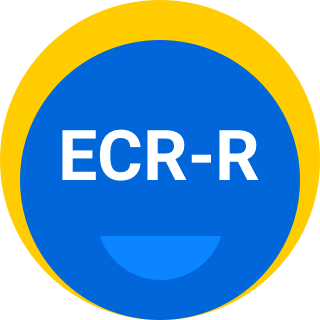
The Experiences in Close Relationships-Revised (ECR-R) questionnaire is designed to assess individual differences with respect to attachment-related anxiety (i.e., the extent to which people are insecure vs. secure about the availability and responsiveness of romantic partners) and attachment-related avoidance (i.e., the extent to which people are uncomfortable being close to others vs. secure depending on others).
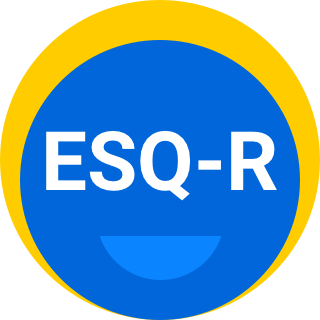
The Executive Skills Questionnaire - Revised (ESQ-R) is a self-report assessment instruments that students complete to help them (and their teachers or coaches) understand their executive skill strengths and challenges.

The Difficulties in Emotion Regulation Scale (DERS) is a 36-item self-report measure of difficulties in emotion regulation.
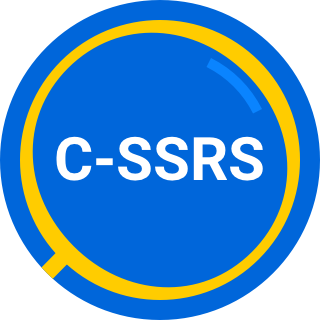
The Columbia Protocol, also known as the Columbia-Suicide Severity Rating Scale (C-SSRS), supports suicide risk assessment through a series of simple, plain-language questions that anyone can ask.
The Generalized Anxiety Disorder 7 (GAD-7) is a brief scale for anxiety. It scores 7 common anxiety symptoms. Though originally developed to diagnose generalized anxiety disorder, the GAD-7 also proved to have good sensitivity and specificity as a screener for panic, social anxiety, and post- traumatic stress disorder.

The Hamilton Anxiety Scale (HAM-A) is rating scale for the symptoms of anxiety neurosis. It has been prepared as an aid to the quantification of symptoms.
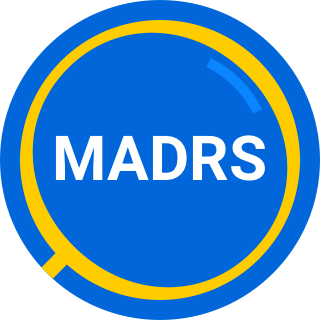
The 10-item Montgomery-Åsberg Depression Rating Scale (MADRS) measures severity of depression in individuals 18 years and older. Each item is rated on a 7-point scale. The scale is an adaptation of the Hamilton Depression Rating Scale and has a greater sensitivity to change over time. The scale can be completed in 20 to 30 minutes.
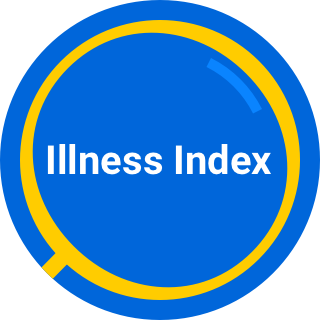
The Illness Index questionnaires measure appraisal of a disease, injury, or disability in terms of its biological, psychological, and social disruption. The total score represents the global effect of a disease or physical disability on the biopsychosocial ecology of a person's life.
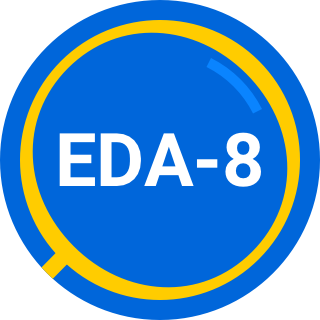
Extreme Demand Avoidance 8-item measure (EDA-8) is a brief caregiver-report measure of EDA traits for caregivers of children aged 5 – 17 years.
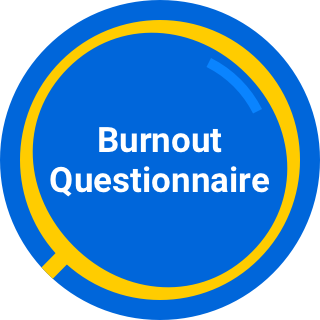
The Burnout Questionnaire is a standardized tool to assess burnout.

The Friel Co-dependency Assessment Inventory (FCAI) is a clinically based self-report research tool designed to measure codependent concerns in adults.
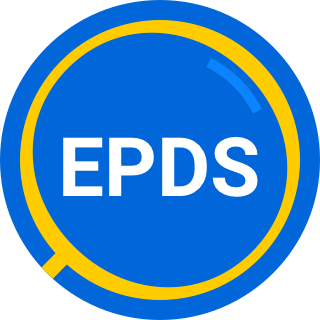
The Edinburgh Postnatal Depression Scale (EPDS) is a 10-item self-report scale to screen for Postnatal Depression.
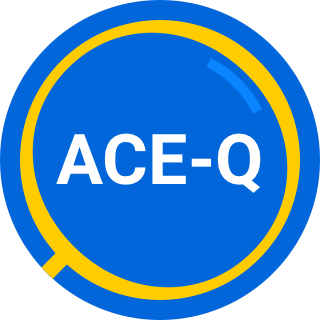
The Adverse Childhood Experiences Questionnaire (ACE-Q) is a 10-item measure used to measure childhood trauma.
The SWLS is a short 5-item instrument designed to measure global cognitive judgments of satisfaction with one's life.

The Life Events Checklist for DSM-5 (LEC-5) is a self-report measure designed to screen for potentially traumatic events in a respondent's lifetime.
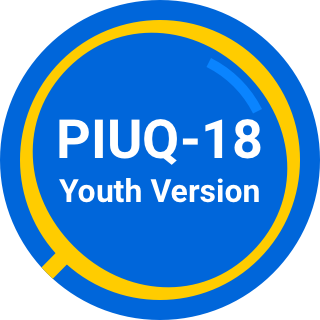
The Problematic Internet Use Questionnaire (PIUQ) is a useful assessment tool for measuring problems in connection with Internet use.

The Humor Styles Questionnaire (HSQ) assesses four dimensions relating to individual differences in uses of humor. These are: relatively benign uses of humor to enhance the self (Self-enhancing) and to enhance one's relationships with others (Affiliative), use of humor to enhance the self at the expense of others (Aggressive), and use of humor to enhance relationships at the expense of self (Self-defeating).
The Patient Health Questionnaire 9 (PHQ-9) is the nine item depression scale from Patient Health Questionnaire (PHQ). It is used for assessing and monitoring depression severity.

The Youth Pediatric Symptom Checklist-17 (Y PSC-17) is a psychosocial screen designed to facilitate the recognition of cognitive, emotional, and behavioral problems so that appropriate interventions can be initiated as early as possible.
The NIDA Quick Screen (NIDA-QS) is designed to assist clinicians serving adult patients in screening for drug use.
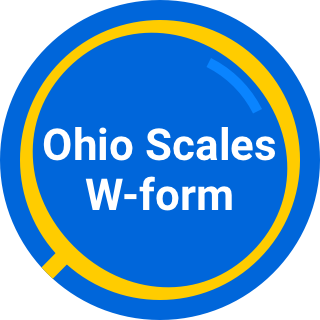
The Ohio Scales for Youth are brief measures of outcome for youth receiving mental health services. The scales include a 20 item Problem Severity scale and a 20 item Functioning scale rated from the youth. In addition, the agency worker form also includes the Restrictiveness of Living Environment Scale (ROLES) created by Hawkins et al. (1992) and several indicators of outcome.
The coronavirus anxiety scale (CAS) is a self-report mental health screener of dysfunctional anxiety associated with the coronavirus crisis.

The Valuing Questionnaire (VQ) is a 10-item scale measure of valued living. It measures two related constructs - "Progress" and "Obstruction". "Progress" reflects enactment of values, including clear awareness of what is personally important and perseverance. "Obstruction" reflects the disruption of valued living due to avoidance of unwanted experience and distraction from values by inattention to values or attention to other psychological experiences.

The Post-Traumatic Stress Disorder (PTSD) Checklist for DSM-5 (PCL-5) is a 20-item self-report measure that assesses the presence and severity of PTSD symptoms.
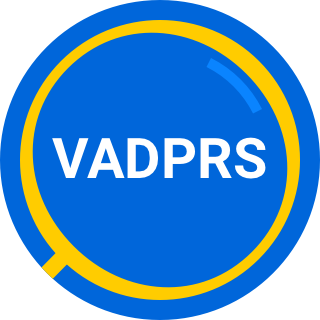
Vanderbilt Attention Deficit/Hyperactivity Disorder Parent Rating Scale (VADPRS) is a parent rating scale to help diagnose ADHD in children between the ages of 6- and 12-years.

Tamanna is an Aptitude Test for Senior School Students to enable stakeholders know the aptitude of students of classes IX and X.
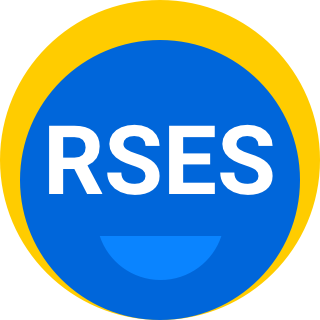
The Rosenberg Self-Esteem Scale (RSES) was developed by Morris Rosenberg in 1965. It is a 10-item self-report measure of global self-esteem.

The Eating Attitudes Test (EAT-26) is a standardized self-report measure of symptoms and concerns characteristic of eating disorders. It is probably the most widely used test used to assess “eating disorder risk” based on attitudes, feelings, and behaviors related to eating and eating disorder symptoms.

The Gatekeeper Behavior Scale (GBS) is a tool to measure the effectiveness of gatekeeper training by assessing participants’ skills, attitudes, and intentions, which predicts engagement to help those in psychological distress and those at risk of suicide.
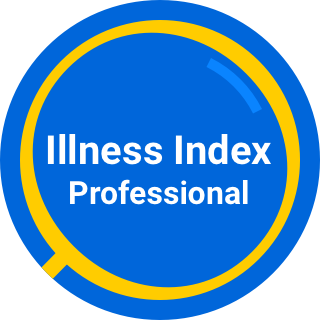
The Illness Index questionnaires measure appraisal of a disease, injury, or disability in terms of its biological, psychological, and social disruption. The total score represents the global effect of a disease or physical disability on the biopsychosocial ecology of a person's life. The Illness Index – Professional contains the same content as the Illness Index, but with modified wording to allow the physician, physician assistant, nurse, or other qualified healthcare provider to rate the patient.
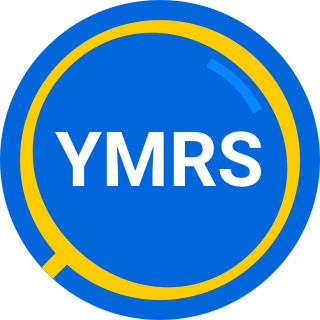
The Young Mania Rating Scale (YMRS) is an eleven item clinician-administered rating scale to measure the severity of mania by the criteria for psychiatric rating scales discussed by Hamilton (1974).

The Autism-Spectrum Quotient (AQ) is a self-assessment screening instrument for measuring the degree to which an adult with normal intelligence has the traits associated with the autistic spectrum.
.png?alt=media&token=fdfcaca8-9e79-4e46-b8f1-b584315203da)
The General Procrastination Scale (For student populations) is a 20-item measure of general procrastination.

The Generic BFRB Scale-8 (GBS-8) is a transdiagnostic scale to measure the severity of body-focused repetitive behaviours (BFRBs).